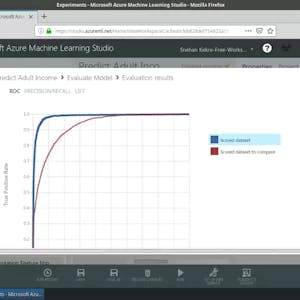Motion Planning for Self-Driving Cars

$49
ENROLL NOWCourse Overview
Welcome to Motion Planning for Self-Driving Cars, the fourth course in University of Toronto’s Self-Driving Cars Specialization. This course will introduce you to the main planning tasks in autonomous driving, including mission planning, behavior planning and local planning. By the end of this course, you will be able to find the shortest path over a graph or road network using Dijkstra's and the A* algorithm, use finite state machines to select safe behaviors to execute, and design optimal, smooth paths and velocity profiles to navigate safely around obstacles while obeying traffic laws. You'll also build occupancy grid maps of static elements in the environment and learn how to use them for efficient collision checking. This course will give you the ability to construct a full self-driving planning solution, to take you from home to work while behaving like a typical driving and keeping the vehicle safe at all times. For the final project in this course, you will implement a hierarchical motion planner to navigate through a sequence of scenarios in the CARLA simulator, including avoiding a vehicle parked in your lane, following a lead vehicle and safely navigating an intersection. You'll face real-world randomness and need to work to ensure your solution is robust to changes in the environment. This is an intermediate course, intended for learners with some background in robotics, and it builds on the models and controllers devised in Course 1 of this specialization. To succeed in this course, you should have programming experience in Python 3.0, and familiarity with Linear Algebra (matrices, vectors, matrix multiplication, rank, Eigenvalues and vectors and inverses) and calculus (ordinary differential equations, integration).
Course FAQs
What are the prerequisites for 'Motion Planning for Self-Driving Cars'?
Prerequisites for this continuing education class are set by University of Toronto. Most professional development online classes benefit from some prior knowledge. Please check the provider's page for specific requirements.
Will I receive a certificate for this CE class?
Yes, upon successful completion, University of Toronto typically offers a shareable certificate to showcase your new skills and fulfill your continuing education requirements.
How long does this online course take to complete?
Completion times for online continuing education courses vary. The provider's website will have the most accurate estimate of the time commitment needed.





